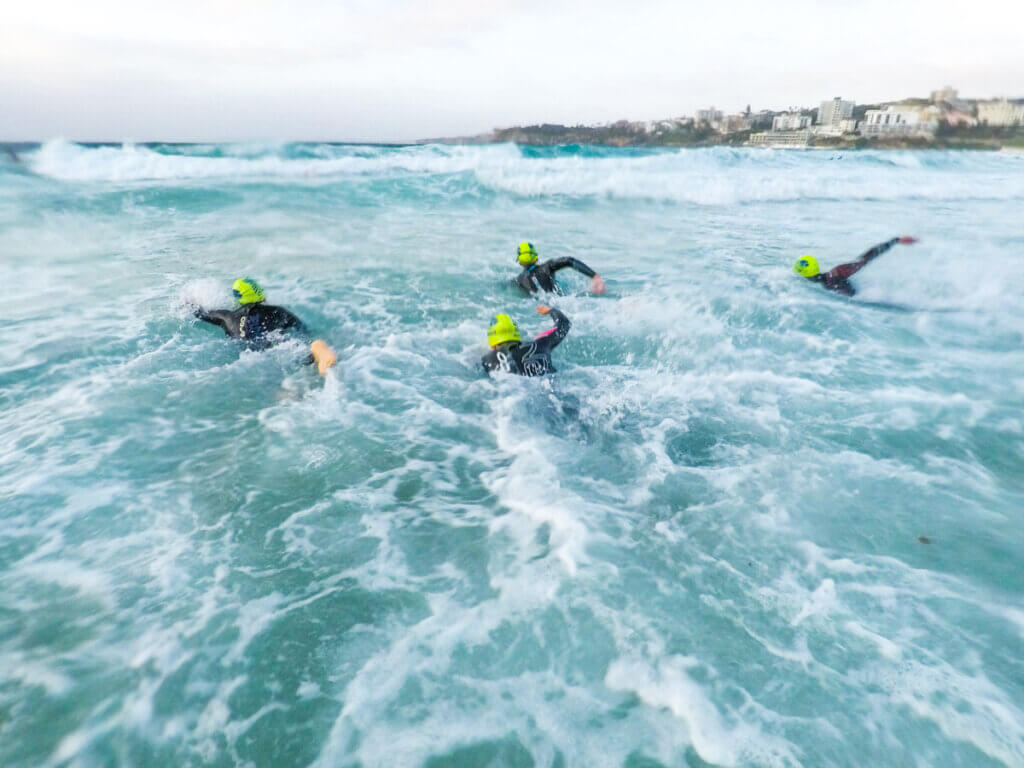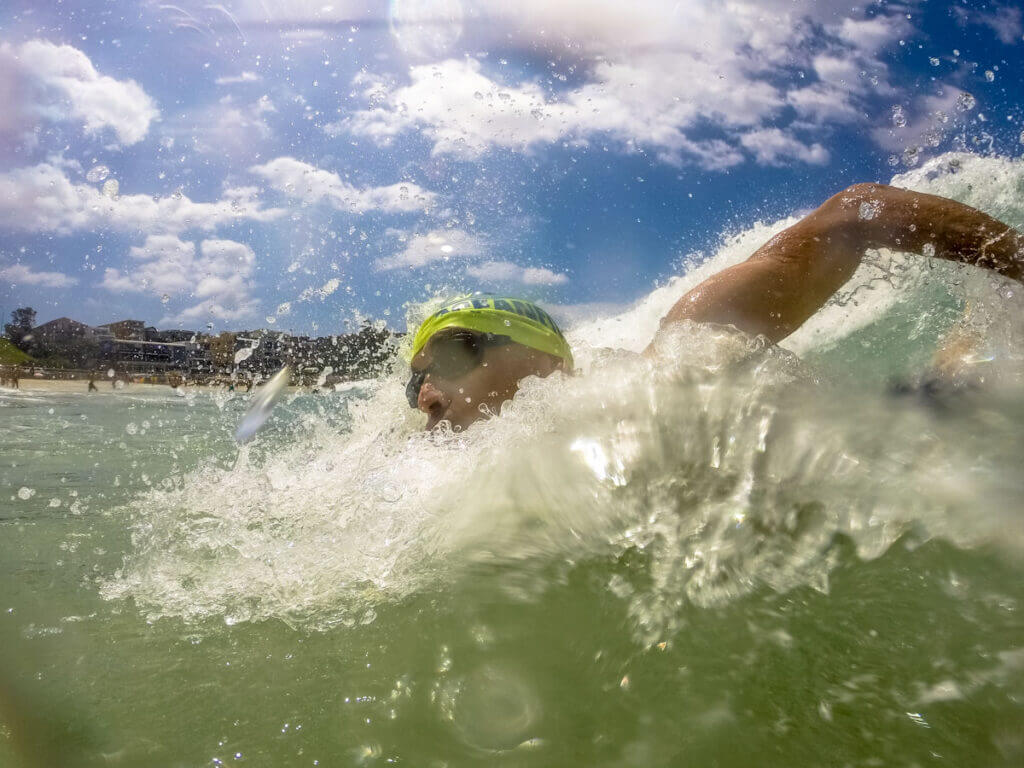Timing is everything

When it comes to ocean swimming, timing is everything.
We time our ocean swims on the tide & the wind.
We time swimming out through the wave zone in lulls, preferably in rip currents after big sets.
If we get our timing right, we can swim onto waves and surf them to shore.
Negotiating waves also requires getting our timing right, and it’s likely the timing you’ll need to perform the most often when you’re ocean swimming.
With every approaching wave, you need to think about timing.
When are you going to initiate your dive?
How long it will take you to get to the required depth to avoid the wave turbulence?
How long will you need to stay underwater for?
How long will it take you to resurface?
Then, in no time at all, you’ll want to think about how much time it will take for the next wave to reach you, and therefore, how much distance are you going to be able to cover, before repeating this all over again.
There are other factors that will influence your timing as well, like the speed of oncoming waves, how fast you swim, your stroke rate, how often you breathe and/or sight, and your general reaction time.
When trying to perfect your timing, keep one thing in mind.
You should be at your deepest under the water, just clear of any wave turbulence, when the wave is directly above you. It should be calm when you dive, calm underwater, and calm when you resurface.
If you find yourself diving into broken whitewater, you’re too late.
If you feel the wave break on your feet, you could’ve started earlier.
If you resurface in turbulent whitewater, you’ve come up short.
Timing is a skill best learnt through repetition, so get out in the surf and practice.
The first wave you dive under will give you an indication of whether your timing was on, or off. When the next wave approaches, you can adjust your timing as necessary, then continue making micro-adjustments as you make your way through the surf.






Wow this article is exactly whtat I need to know ! I have been caught in rip last year and had no idea what to do so I put my hand up! I’ve done several ocean swims, but only when the swell is next to nothing- so that I don’t have to negotiate timing or coming in – as I am so inconfident. I swim regularly in ocean pools, and in the ocean in protected bays, so my swimming fitness is ok but – I definitely need to understand what you have talked about in this article!